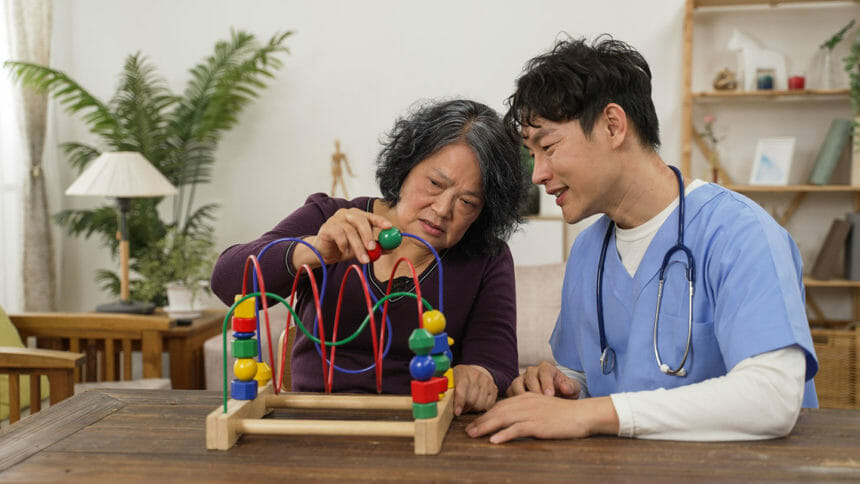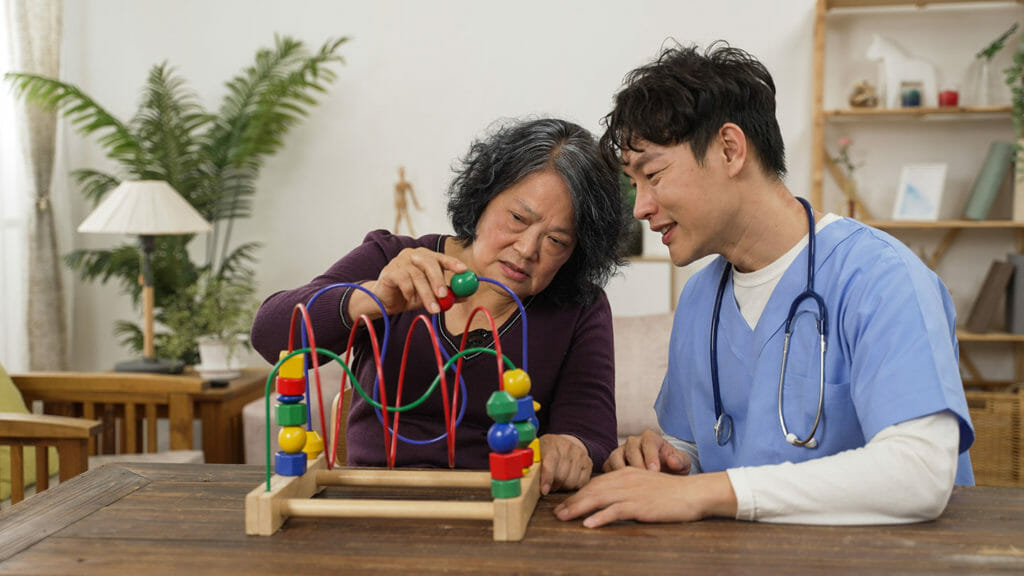

Skilled nursing facilities in states where there aren’t any training delays should be actively working to transition all of their temporary nurse aides to certified status “as soon as possible,” say experts with the nation’s largest nursing home group.
The American Health Care Association on Friday laid out several steps facilities can take to prepare for the end of the COVID-related waiver. That special policy relaxed training requirements for nurse aides who work at SNFs, but the blanket waiver is set to end June 6. The Centers for Medicare & Medicaid Services issued a memo Thursday outlining a handful of waivers that will be retired in 30 days and another batch that will be rescinded after 60 days.
The temporary nurse aid (TNA) waiver has allowed SNFs and other long-term care facilities to employ non-yet-certified aides for more than four months, even if they haven’t completed the necessary training and certification requirements.
CMS reminded states Thursday that all nurse aides, including those hired under the blanket waiver, must complete a state approved Nurse Aide Competency Evaluation Program to become a certified nurse aide. They also must pass a written or oral exam to demonstrate skills learned. AHCA said providers should follow their state’s guidelines if it has an approved transition or bridge program from temporary nurse aide to CNA.
SNFs in states that have training and testing backlogs should start evaluating the status of all employed temporary nurse aides, AHCA emphasized. CMS noted that it would grant further allowances in states where training and certification backlogs will prevent quick, full certification. Providers should maintain supporting documentation that shows each aide’s progress, AHCA added.
“Have written documentation demonstrating all attempts made to have TNAs complete their training and testing,” AHCA wrote. “This can include documentation from both the facility and the TNAs to training programs and testing sites in multiple locations.”
Providers also should have frequent communication with state officials regarding delays in training and testing and document all of those talks.
The association added that providers should “enroll TNAs [temporary nurse aides] into training and/or testing centers as soon as possible, even if the only option is a waitlist.”
“Facilities will need to have TNAs become certified before October 6, 2022, to continue working as a nurse aide,” the association wrote. “If a TNA is not certified by the end of the four months post-waiver termination, the TNA cannot continue working as a nurse aide in training, except for those who are experiencing testing and/or training capacity issues and have received approval from their state official.”
The association also said if there are temporary nurse aides who do not want to become a CNA, the provider should try to see if they can engage them to do non-nurse aide work, such as a shift coach, spending 1-on-1 time with residents or answering call lights.





